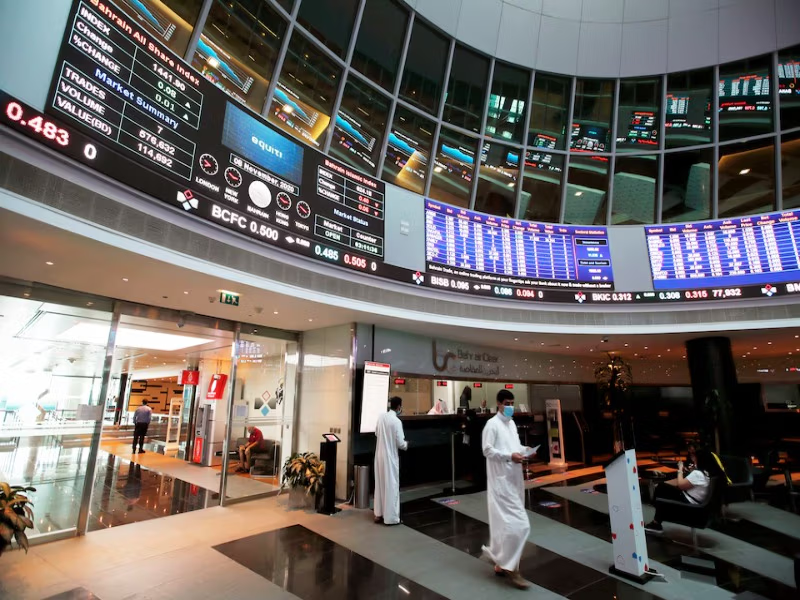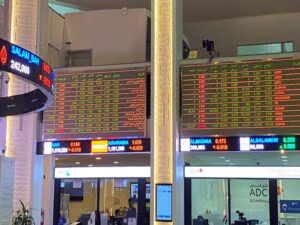Earlier trade in the Gulf region saw major stock markets ambivalent in the initial trade on Tuesday, burdened by the slowing oil prices and diminished expectations of a rate cut by the U.S. in December.
The Federal Reserve reduced interest rates last week in its second effort this year, although the Chair, Jerome Powell, indicated that this year’s reduction was “not a foregone conclusion.”
According to CME’s FedWatch Tool, the market participants have a 65 percent probability of another rate cut in December compared to over 90 percent before Powell made his statements.
The monetary policy of the U.S. will largely impact the Gulf markets, the majority of which are pegged to the dollar.
The index of Saudi Arabia’s benchmark increased by 0.2 percent, and it was supported by a 1.1 percent rise in Saudi National Bank, which is the largest lender in the country in terms of assets, and a 1.1 percent increase in oil giant Saudi Aramco.
Aramco stated that the third-quarter net profit, which was 101.02 billion riyals ($26.94 billion), is lower than the previous year.
However, the company increased its growth target in sales gas production capacity to approximately 80 percent above its level in 2021, which is a higher figure than its earlier target of over 60 percent.
Therefore, the Saudi Telecom Company surged 0.9 percent after increasing its revenue on a quarterly basis.
A survey showed on Tuesday that the non-oil private sector of the kingdom reported one of its strongest performances since 2014 in October, with new orders and employment increasing.
The index increased by 0.3 in Abu Dhabi, with the assistance of a 3 percent increase in Aldar Properties.
The decline of Aldar in the last two sessions was sharp following a Bloomberg report that Alpha Dhabi was planning to divest some part of its stake in the developer.
The key share index of Dubai declined by 1.8 percent, affecting the largest lender, Emirates NBD, which dropped by 0.1 percent.
The prices of crude oil fell because the markets interpreted the announcement by OPEC+ to suspend its decision to increase output hikes in the first quarter as an indication of excess supply in the market.
The Qatari index fell by 0.1 percent, and Qatar Islamic Bank dropped by 0.7 percent.






